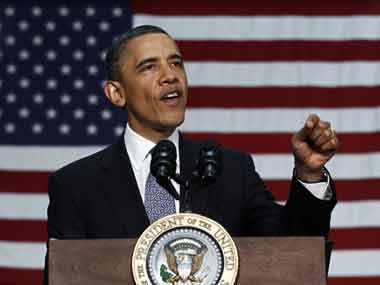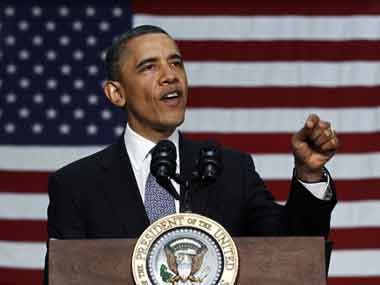HONOLULU: U.S. President Barack Obama used an Asia-Pacific summit on Saturday to push back against China’s trade practices, insisting Beijing must stop poaching U.S. intellectual property and allow its currency to rise.
Obama, under pressure to create jobs at home and eager to highlight U.S. influence abroad, said an undervalued Chinese yuan was putting U.S. businesses at a disadvantage, adding that a change in the currency policy would help the global economy.
“What I have said since I first came into office and what we’ve exhibited in terms of our interactions with the Chinese is we want you to play by the rules. And currency is probably a good example,” Obama said at a forum of executives on the sidelines of the Asia-Pacific Economic Cooperation summit.
Obama also took his own county to task, saying it needed to do more to encourage foreign investors to seek opportunities in the United States.
Obama is under pressure from Republican presidential candidates, including front-runner Mitt Romney, to take a tougher line with China. His remarks on Beijing’s trade practices seemed more pointed than in the past.
But U.S. leverage over Beijing is limited since China is theUnitedStates’ largest foreign creditor of the United States, holding more than $1.1 trillion in U.S. debt.
Obama told the business leaders the United States was putting a priority on the fast-growing Asia-Pacific region.
On Europe, he offered guardedly optimistic predictions that it would work its way through its fiscal problems.
He said Italy’s troubles could not be fixed overnight but it was important Europe stand behind its euro zone members.
[caption id=“attachment_129717” align=“alignleft” width=“380” caption=“Obama and Hu Jintao took widely differing stands on global trade at the Asia-Pacific Economic Cooperation summit - Reuters”]
 [/caption]
[/caption]
Obama spoke shortly after Chinese President Hu Jintao took the podium at the gathering of executives. Hu told them Beijing was committed to free trade in the Asia-Pacific region and urged mutual respect in global decision-making.
The two presidents, leaders of the world’s two largest economies, were due to meet one-on-one later on Saturday.
In his speech, Hu sought to soothe the concerns of foreign businesses over market access in China. He repeated China’s commitment to reform and opening up its economy but offered little new to address concerns that American business cannot compete fairly.
China has been reluctant to sign trade deals that would subject it to U.S-led efforts to further open its economy to foreign players because that would put competitive pressure on its state-owned enterprises.
Hu told the business leaders he favours pursuing more open trade through bodies such as the World Trade Organization. He has touted trade with China as a way to boost U.S. growth and help Obama achieve his goal of doubling exports.
At the same time, he insisted China be given what it sees as its rightful place in world affairs.
“The new mechanism for global economic governance should reflect the changes in the world economic landscape,” Hu told executives. “It should observe the principle of mutual respect and collective decision-making and increase the representation and voice of emerging markets and developing countries.”
Reuters
)